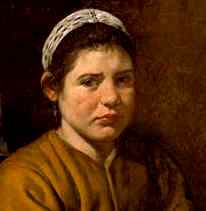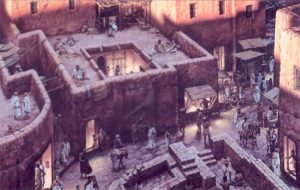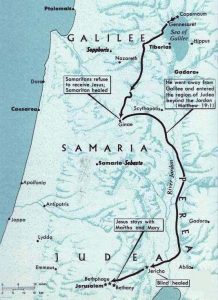Activities for Bible study
Should women work or stay at home?
For many women, it’s not a choice. They work because their family needs the money.
Other women choose to work because they like their job and they like the extra money. In a way this is the central question behind the story of Mary and Martha.
- Martha knows domestic chores are essential, though undervalued; she knows that a well-run household and competent food preparation demand as many skills as a Law Degree.
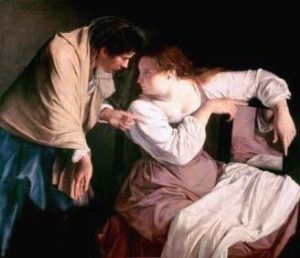
Martha reproving her sister Mary, Orazio Gentileschi
- Mary, on the other hand, demands equal rights with the male disciples who are encouraged to learn, read and discuss. She has a good mind: why can’t she use it?
Jesus sees another dimension to the question: each of us has an obligation to develop our prayer-life, our spirituality and our relationship with God; this is the really important thing.
- Who is right?
- Can we develop some system where all of these needs are catered to?
- Do you or anyone in your study group have practical suggestions?
Paintings of Martha, Mary and Lazarus
Martha and Mary: Paintings has 26 stunning artworks for this story – with comments and explanations of the hidden meanings…
Stage 1
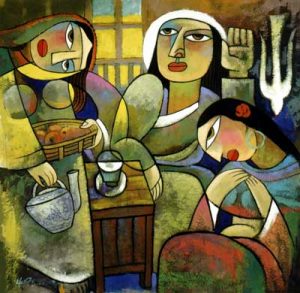
Martha & Mary, He Qi
Read the story at Martha and Mary
Stage 2
Go to Martha and Mary: Paintings. Scroll through the paintings from first to last.
- Which part of the story of Martha and Mary has been the most popular with artists?
- Would this have been your choice?
Artists paint what they want to paint, but they also paint with their audience in mind. Look at the paintings again. Who is the painting directed at? At you, or someone quite different? Explain your reasoning.
Stage 3
If you have chosen something different, ask yourself why this other incident appeals to you more than the scene favored by the artists. Spend some time quietly thinking about your response. What does it say about you?
A letter from the past
Choose one of the three characters in the Bethany household: Martha, Mary or Lazarus.
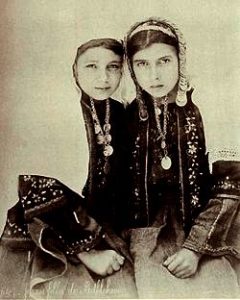
Bethlehem girls in traditional dress, early 19th century photograph
Write a letter to that person, asking for more details about what happened in one of the events in which Jesus played a part.
You might ask about the house they lived in, what they were doing, what their emotions or reactions were, what the other people in the story were like, etc. Or something quite different. It’s up to you.
Compose the letter that Martha, Mary or Lazarus might have written in response to your questions. Give as much information as you can.
Base your response on
- information you’ve gathered about the life and people of the times
- a personal reconstruction of emotions, reactions, ideas, etc. that people might have felt.
Tracing the last steps of Jesus
Research the route that Jesus probably followed through the Jerusalem/Bethany/Kidron Valley area.
See also the possible Road to Calvary, showing a route Jesus may well have taken on the Way of the Cross.
Find the probable locations of events in the last days of Jesus’ life.
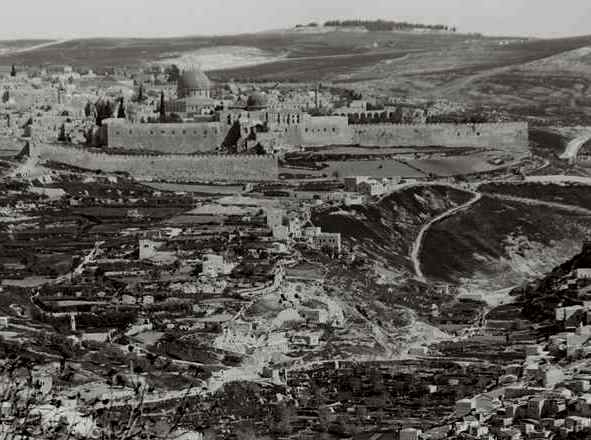
This 19th century photograph shows the city of Jerusalem with the Kidron Valley in the lower right. The house of Mary, Martha and Lazarus was to the right of the photographed area, up the hill from the Kidron Valley
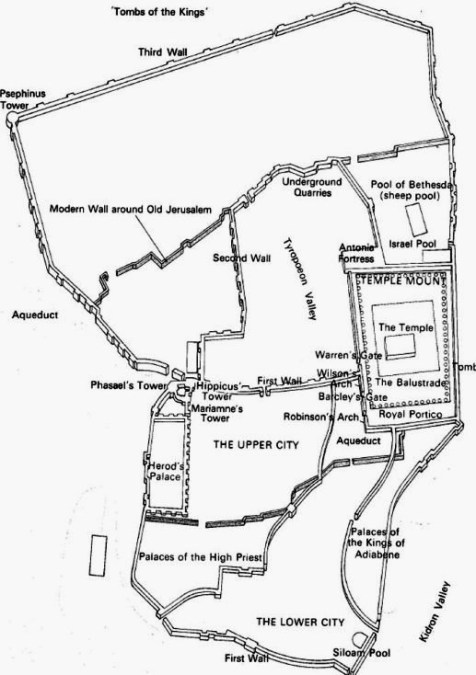
Jerusalem at the time of Jesus
The dinner at Bethany
Find out about meals in ancient Israel
- the meat, vegetables and desserts that were available ( a famous cook called
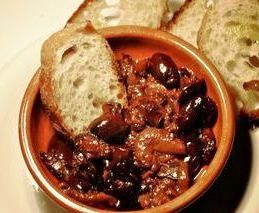 Apicius wrote a cookbook at about the time these events occurred, using ordinary ingredients as well as expensive ones; use a search engine to locate this book and consult his recipes)
Apicius wrote a cookbook at about the time these events occurred, using ordinary ingredients as well as expensive ones; use a search engine to locate this book and consult his recipes) - the type of cooked dishes that were served
- the layout of a dining room
- the etiquette of dining.
Helpful links:
Using this information, describe the food Jesus may have eaten at the home of Martha, Mary and Lazarus.
Famous quotations
- ‘But Martha was distracted by her many tasks…..’ (Luke 10:40)
- ‘Lazarus, come out!’ (John 11:43)
- ‘You always have the poor with you, but you do not always have me.’ (12:8)
These three simple quotatons from the story of Martha and Mary have profound meanings.
- The first is about the balance between work and prayer
- the second is about Jesus’ power, and his command to Lazarus (and us) to live fully
- the third is about the necessity of worship as well as good works.
Read and think about the ‘Famous Quotes’ above.
What does each one mean to you?
Put your idea into words, and discuss your interpretation with a learning partner.
Focus Questions for the gospel passages
1. What are the most interesting moments in the sisters’ story?
2. In the story, who speaks and who listens? 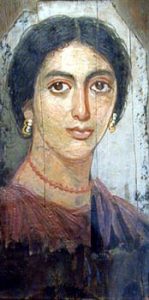 Who acts? Who gets what they want? If you were in the story, which person would you want to be friends with? Which person would you want to avoid?
Who acts? Who gets what they want? If you were in the story, which person would you want to be friends with? Which person would you want to avoid?
3. What is Jesus’ interaction with the main characters?
4. What is happening on either side of the story, in the chapters before and after it? Does this help you understand the purpose of the story?
5. The narrator/editor has chosen to tell some things and leave other things out. What has been left out of the story that you would like to know?
6. Are these sorts of people still present in the world? How is the story relevant to modern life, especially your own?
© Copyright 2006
Elizabeth Fletcher


